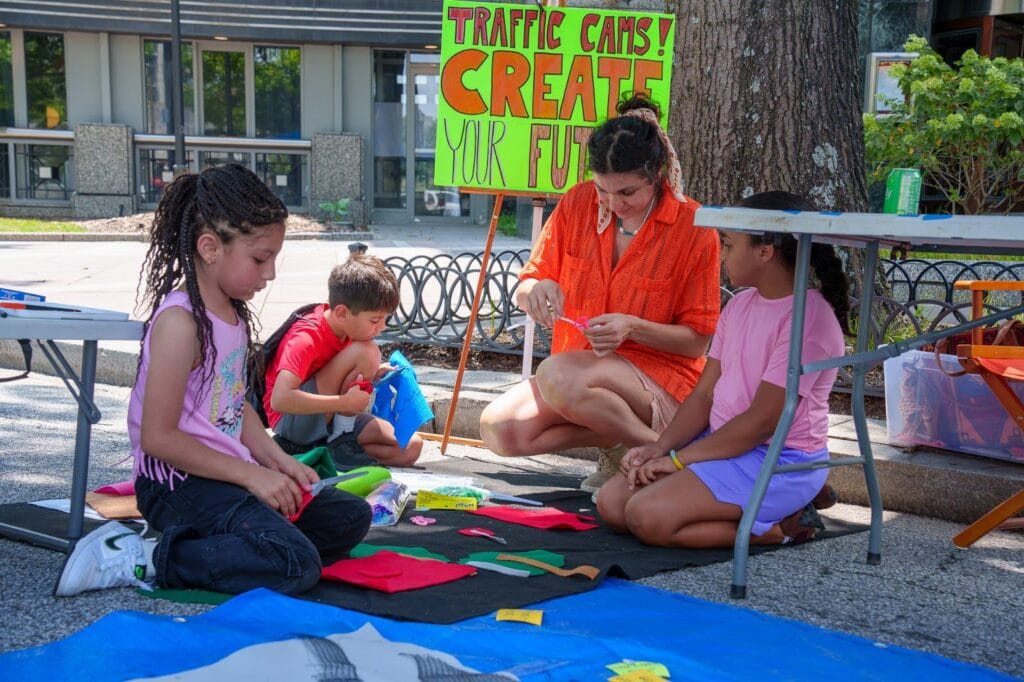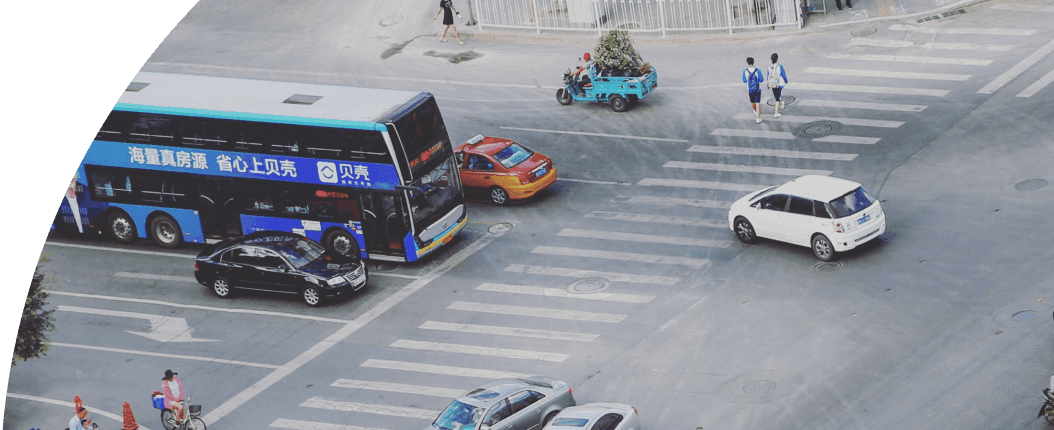
News
By Courtney Cole, January 28, 2025
This case study highlights work from those who participated in our Healing our Highways program, an initiative that aims to inspire creative ideas and activities to build knowledge, connections, and power within disadvantaged communities most harmed by transportation systems and climate change. Atlanta, Georgia has dealt firsthand with the harms perpetuated by the U.S. highway system. Fractured by numerous stretches of highway and interchanges, Atlanta has been shaped by decades of systemic racism and car-centric culture. A team of artists is working with their community to reimagine their spaces without cars.
Background

Photo by Jordan Young.
It’s no surprise that much of Atlanta’s space is dedicated to parking and driving automobiles. The Atlanta team wanted to create a way for community members to imagine what it would look like if space in the city was used for people instead of cars. Equipped with the knowledge their city is the most heavily surveilled in the country and that the city-owned camera feeds are publicly accessible, the team decided to use this data to create a web-based application that allows the user to “erase” a highway or road and fill the now-blank canvas with amenities more suited for a thriving public space. In addition to creating the app, the Atlanta team held events where participants of all ages expressed their vision for how community spaces can be used through various artistic mediums.
Taking action

The Atlanta team learned a great deal from the experts from Smart Growth America and Demo Lab South during the Healing Our Highways program, especially about the power structures that advocates must navigate while pursuing changes. They also found the education on infrastructure-related data and how to leverage data for advocacy very useful. While they previously understood that Atlanta is a very dangerous metro area for pedestrians, having clear data better equipped them to advocate for spaces that prioritize people. They hope to package the resources they created as part of the Healing Our Highways program so that other communities can use them for their own advocacy.
“Community activism and art should overlap more, and so having someone in the middle who can speak the language of either and help translate is very helpful, especially for an artist like me, who usually works alone, suddenly coming in and working with the community.” –Eddie Farr, Multi-Media Artist
Related News

© 2025 Smart Growth America. All rights reserved
Site By3Lane Marketing












